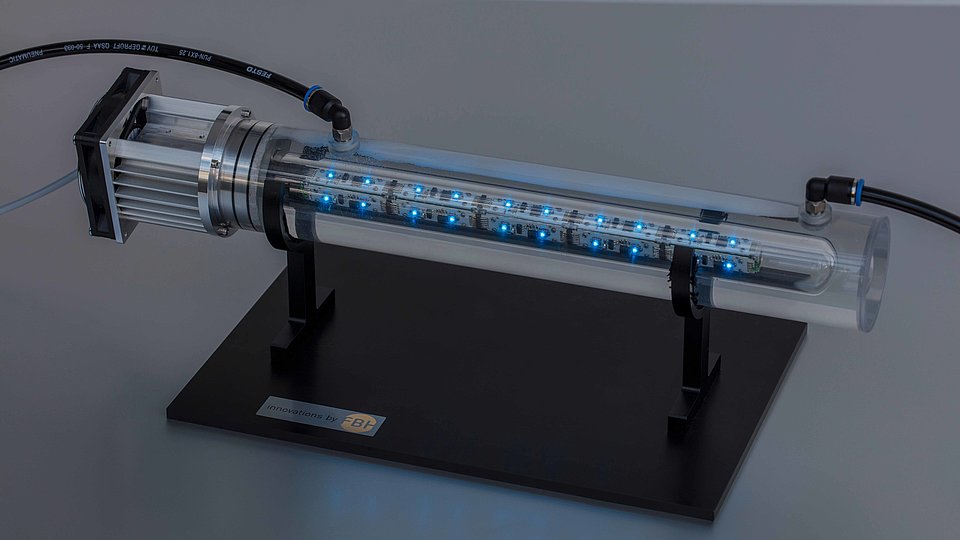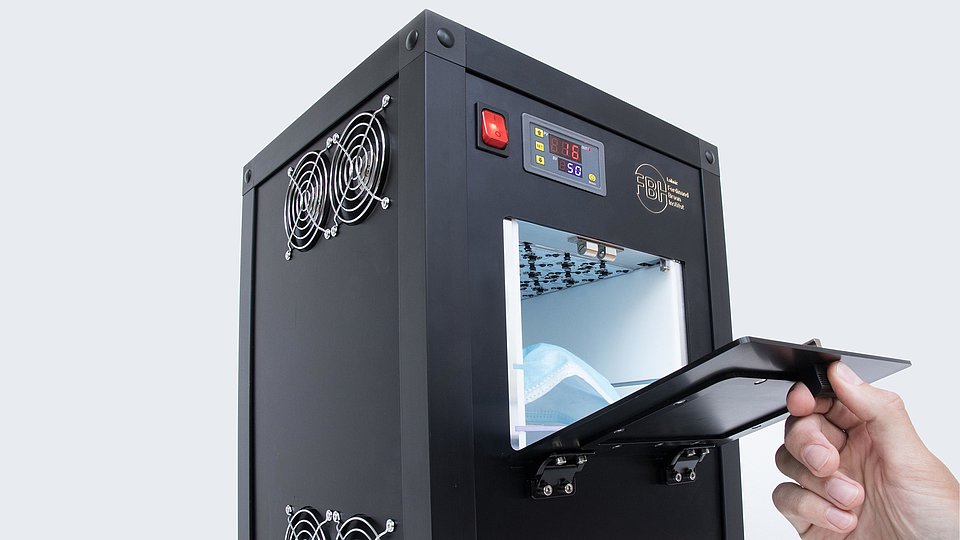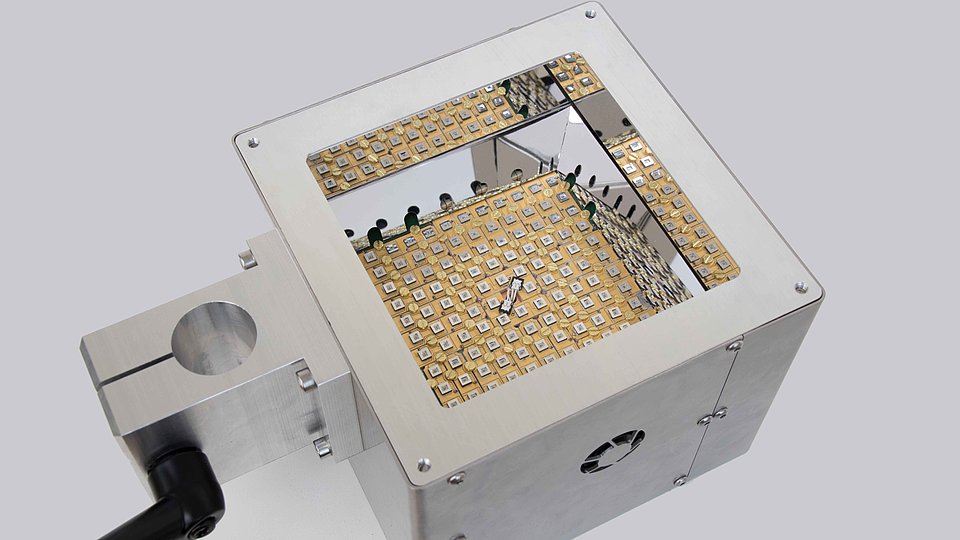UV LED Modules
We develop modules with UV light-emitting diodes which we adapt to the respective application and which can be optimally integrated into the advised overall irradiation system. Preference is given to using our own UV LEDs. If necessary, the systems can be supplemented by LEDs from commercial suppliers. We have already developed UV LED modules for the disinfection of drinking water, carrier fluid in flow cytometers and surfaces in real-time PCR platforms for the identification of SARS-CoV-2.
The advantages of UV LEDs at a glance
- small, compact and robust
- can be operated at low voltages
- can be switched quickly
- do not contain toxic substances
Thanks to these properties, the UV LED modules can be easily integrated into existing devices and are ideally suited for mobile applications. As a result, they already outperform conventional UV radiation sources such as mercury-based gas discharge lamps in many respects.
Complete value chain in-house
- epitaxial fabrication of the semiconductor heterostructures by MOVPE
- chip technology in the process line of the FBH clean room and assembly of the chips in suitable packages
- fabrication of the electronic and mechanical components, their assembly and, if required, supplemented by optics
- characterization and qualification (e.g. radiation characteristics, degradation behavior as well as definition of ideal operating conditions)
Leibniz Lab: Pandemic Preparedness
The Leibniz Lab “Pandemic Preparedness” focuses on preparing for future pandemics. To achieve this, 41 Leibniz institutions are pooling their expertise to develop strategies aimed at permanently strengthening the pandemic resilience of all areas of society.
The FBH has extensive know-how in the development and beneficial use of novel and innovative irradiation sources based on UV LEDs for disinfection purposes. Contributing this expertise, the FBH is focused on the key topics of “Environment-Animal-Human Interphase”, “Burden of Disease” and “Pandemic-Resilient Education System”. For example, measures aim at minimizing animal-to-human transmission through a resilient livestock stable design and reducing infection risks in educational institutions and public transport through innovative room concepts.



